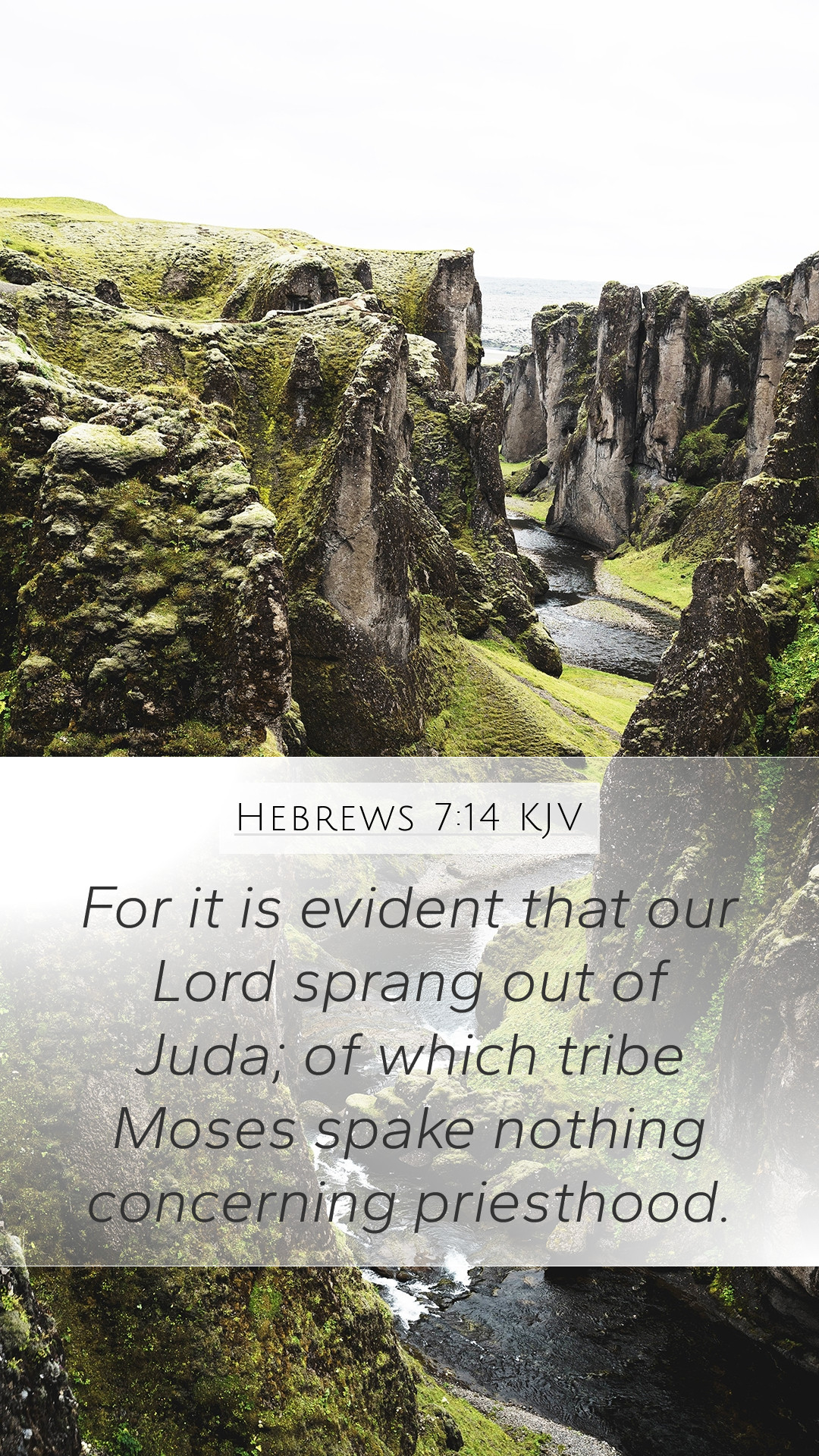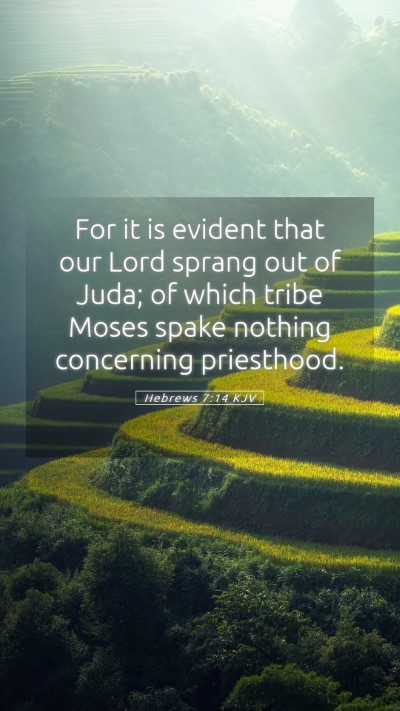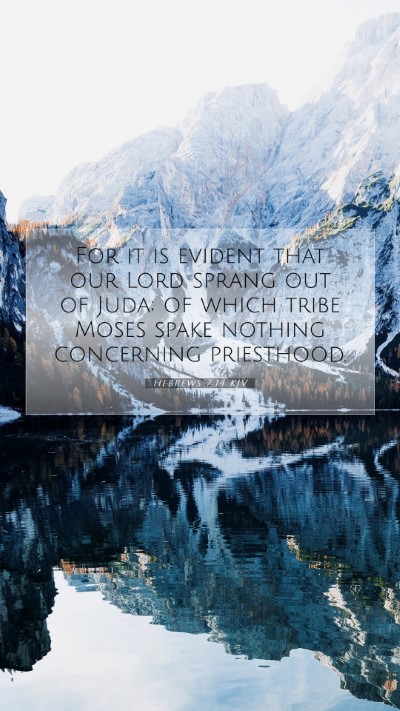Understanding Hebrews 7:14
The Bible verse Hebrews 7:14 states, "For it is evident that our Lord arose from Judah; of which tribe Moses spake nothing concerning priesthood."
This verse holds significant meaning within the context of biblical theology and the priesthood of Christ, providing insights into Jesus' lineage and His role as the eternal High Priest.
Bible Verse Meaning
In this verse, the author of Hebrews underscores the importance of Jesus’ connection to the Tribe of Judah as opposed to the priestly tribe of Levi. This brings forward key themes in Biblical exegesis and contributes to a broader understanding of Bible verse interpretations.
1. Context of Hebrews
The book of Hebrews serves to illustrate how Jesus fulfills Old Testament prophecy, acting as both King and Priest — a theme not typical within Jewish tradition, where the roles were distinctly separate. Matthew Henry notes that this dual role exemplifies the uniqueness of Christ's position in salvation history.
2. The Tribe of Judah
Jesus’ genealogy in the Gospel of Matthew clearly establishes Him as a descendant of David, who belonged to the tribe of Judah. Albert Barnes emphasizes that this lineage is critical to understanding the Messiah's rightful claim to kingship, which enriches the context of His priesthood as mentioned in Hebrews.
3. The Role of the Priests
Traditionally, the role of the priest was held by the descendants of Aaron, from the tribe of Levi. The author of Hebrews points out this distinction to highlight that Jesus' priesthood is not derived from earthly lineage but divine appointment. Adam Clarke explains this as a profound shift in the understanding of priesthood, moving from hereditary lines to a spiritual foundation.
4. Implications for Believers
The acknowledgment that Jesus arose from Judah, not Levi, has significant implications for believers. It affirms the belief that Jesus is the ultimate High Priest who mediates a new covenant, granting believers direct access to God. Understanding this allows for a deeper appreciation of Bible study insights and enhancing one's Bible study resources.
Application and Significance
Hebrews 7:14 helps us understand the radical change brought through Christ's priesthood, shifting the focus from the law to grace. By this verse's explanation, we see that true spiritual leadership transcends traditional boundaries, reflecting the inclusive nature of God's redemptive plan.
- Gratitude: Reflect on the gratitude for having direct access to God through Jesus.
- Legacy: Understand that one's spiritual lineage is based on faith in Christ rather than ethnic or cultural heritage.
- Study: Engage in in-depth Bible verse analysis to further comprehend the nuances of Christ's role as High Priest.
Cross References
The following Bible verses relate to Hebrews 7:14 and enrich its meaning:
- Genesis 49:10: Prophecy concerning the scepter not departing from Judah.
- Revelation 5:5: Jesus, the Lion of the tribe of Judah, who has triumphed.
- Hebrews 5:6: Christ is declared a priest forever in the order of Melchizedek.
Conclusion
In conclusion, Hebrews 7:14 holds profound insights into the nature of Christ’s priesthood and His unique heritage. Understanding this passage is crucial for anyone engaged in family Bible study lessons or seeking clarity on what specific Bible verses mean.
This verse serves as a reminder of the transformational power of Christ, urging believers to explore further into Scripture for personal application and spiritual growth within their Bible study groups.


